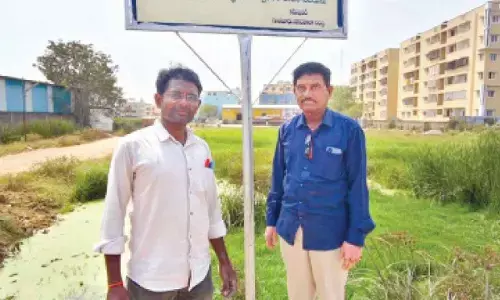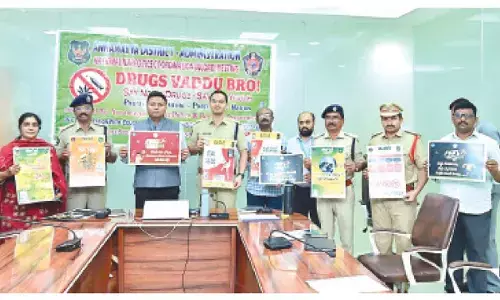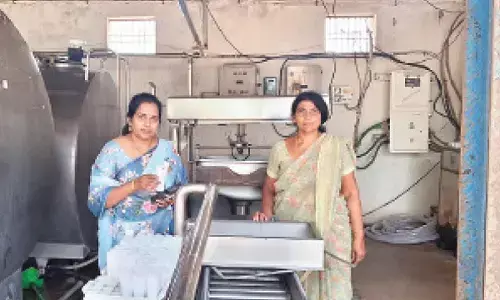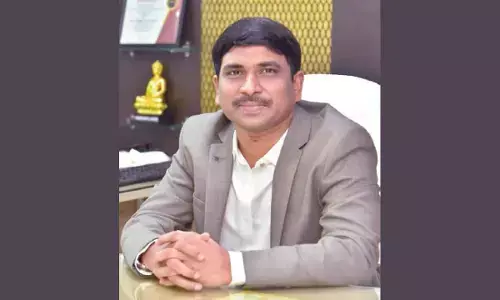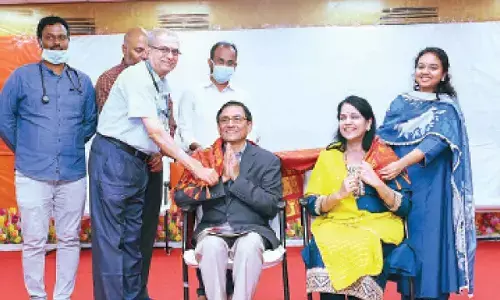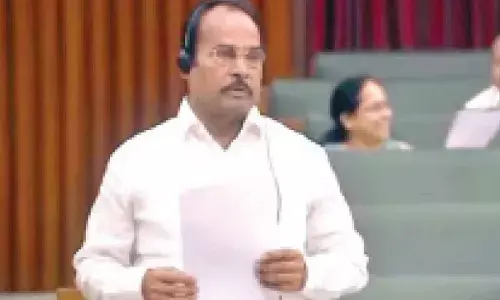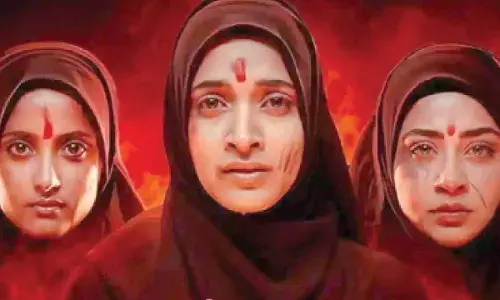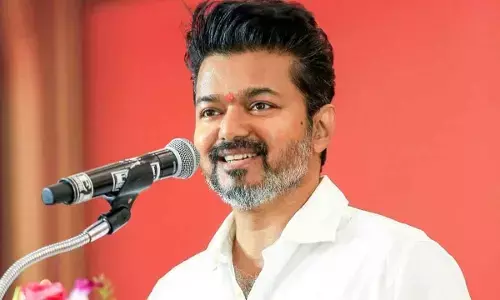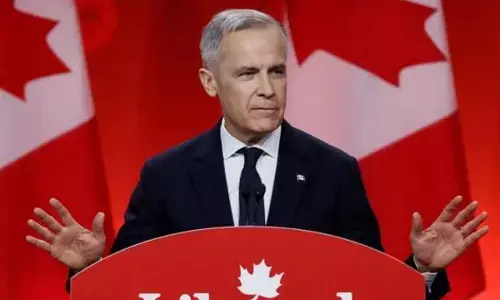Crony capitalists, crony Swamis
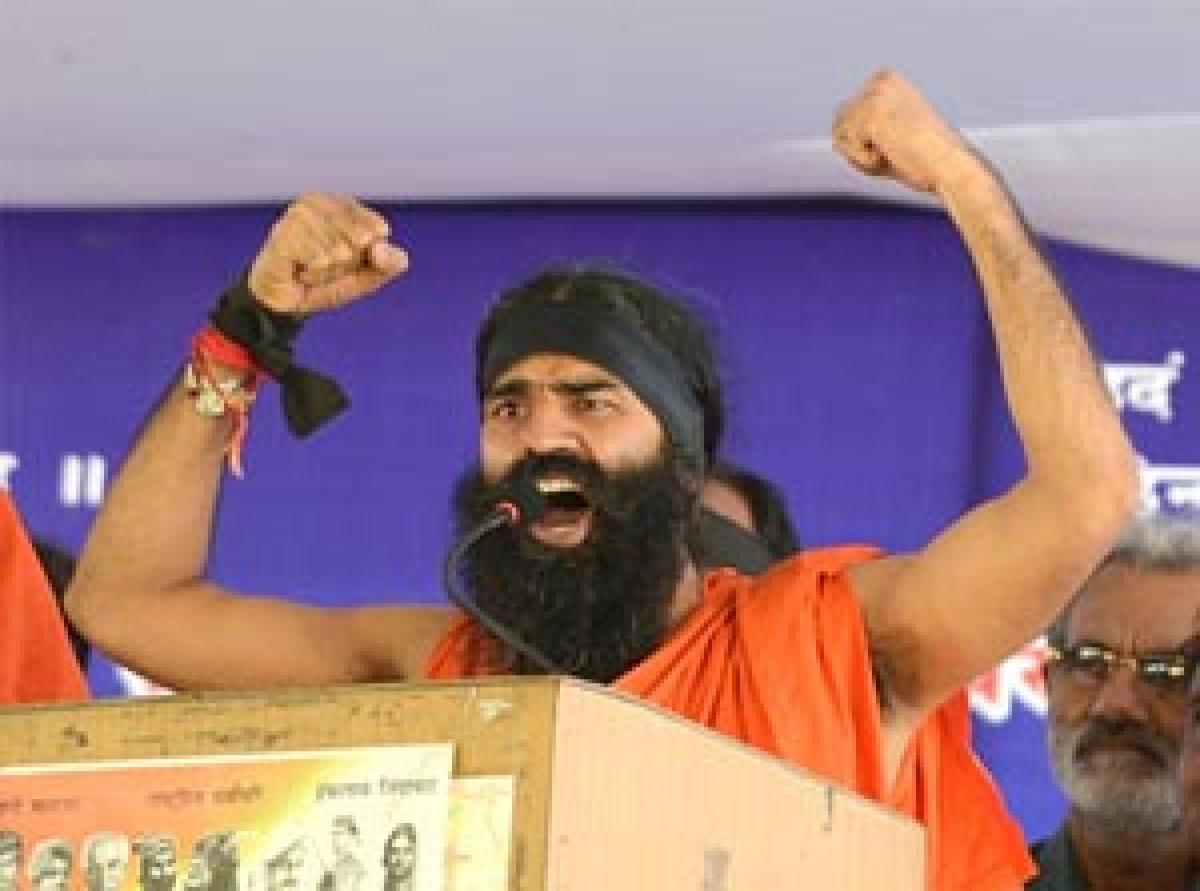
The Governor of Himachal Pradesh Acharya Devvrat was reportedly present on the dais when Baba Ramdev made his widely reported atrocious statements which were nothing but an incitement to violence.
Governor of Himachal Pradesh Acharya Devvrat was reportedly present on the dais when Baba Ramdev made his widely reported atrocious statement that but for the Constitution and the law “we can cut the heads of lakhs who don’t say Bharat Mata ki Jai.” The slogan ‘Bharat Mata ki Jai’ is being used deliberately for two reasons: First, to target the minority communities, and secondly, to divert attention from the failures of the Modi government and the BJP-ruled States to deliver on their many electoral promises
The Governor of Himachal Pradesh Acharya Devvrat was reportedly present on the dais when Baba Ramdev made his widely reported atrocious statements which were nothing but an incitement to violence. Ramdev should be arrested under the clauses for incitement to violence and for hate speech, but more of that later. The country has not heard a single word of the Governor’s reaction. Does he agree with such a blatantly communal speech? If not why did he not protest? Why did his office not at least issue a statement distancing himself from such a speech? Should he in the first place have been present at a rally organised by the RSS?
The Governor’s silence also raises questions about his relations with Ramdev which surfaced even during the time of his appointment in August 2015. Queried about Ramdev’s role in his appointment as Governor, he had answered: “He (Ramdev) has always been a guide and his blessings are with me” (Tribune, August 9, 2015). According to the same report, Ramdev had tried to get a ticket for the Lok Sabha for Devvrat, then the Principal of the Arya Samaj Gurukul in Kurukshetra.
The Governor’s silence could have been dictated by such factors, which have overridden constitutional norms. In this case, it may be said that a constitutional position has been misused to lend support by his very presence to hate speech. In such a situation should the President “at whose pleasure a Governor holds office” not take suo moto notice for appropriate intervention?
The rally in Rohtak in which Ramdev and the Governor shared the dais was termed as a ‘sadbhavna (harmony) rally.’ The question arises “Sadbhavna “ between whom?
The reservations stir by Jat communities caused consternation in the RSS as it had led to what it sees as divisions in the “Hindu samaj.” There was significant inter-caste violence mainly against OBCs and brutality in several areas. At that time, the SP of Jhajjar, an area which had seen killings and burning of properties, had said “we have never seen this kind of violence and divide among castes in Haryana.” With a non-Jat as Chief Minister, the Sangh Parivar is also concerned about the electoral fallout of such a divide. It is in this context that the RSS organised this rally.
The rally was held not far from a place called Murthal. It was here that there were reports of horrible cases of sexual assault of women travelers who were caught in the road blocks caused by the agitation. The Punjab and Haryana High Court has made a scathing criticism of the government for trying to conceal the facts. Ramdev and other RSS speakers did not think it important to condemn the attacks. For them, the rights and security of real, flesh and bone women are not part of Bharat Mata.
The main purpose of the rally was to “unite” the so-called Hindu samaj, “sadbhavana” to overcome a specific caste divide. The incitement to violence by Ramdev was a deliberate strategy because in this warped social view, harmony can be built only on the basis of disharmony and hatred against the manufactured identity of the “enemy” the “other,” in this case, unity against the minority community on the basis of a fake nationalism centred on the slogan ‘Bharat Mata ki Jai.’ If the Hindu samaj can be united against Muslims, then inter-caste differences can be papered over even while maintaining the caste system.
In an earlier piece, I had argued that the slogan has a historical context with a religious connotation. Today, it is being used deliberately for two reasons: First, to target the minority communities, and secondly, to divert attention from the failures of the Modi government and the BJP ruled States to deliver on their many electoral promises.
Ramdev’s statement that but for the constitution and the law “we can cut the heads of lakhs who don’t say Bharat mataki Jai” explicitly describing who he was referring to ‘those who stand with topis” should not be taken as rhetoric. Just as the “Gau Raksha Samithis” in several parts of the country are vigilante groups targeting Muslim cattle traders as in Latehar, Jharkhand, so also the slogan of Bharat Mata ki Jai is the latest in the RSS armoury for violence against minorities. The incident in Delhi when three Madarssa students were beaten up and forced to chant such slogans is an indication of the impact of the RSS campaign of which Ramdev is now the Ambassador.
It suits both, the RSS and Ramdev, a relationship of much convenience. Ramdev and his partner Balkrishna have developed a huge business venture in the food, beverages, cosmetics and medical sector with a projected turnover of Rs 5,000 crore for which they require close relations with the powers-that-be. Crony capitalists are a feature in most capitalist economies. Crony Swamy’s are perhaps uniquely Made in India. Much of the land on which he has built his ventures has been donated by various governments at heavily subsidised rates.
The most recent is the Maharashtra government under Fadnavis which has given 575 acres to Ramdev’s company reportedly at concessional rates and also assured access to forest land and produce in the name of the official “van dhan” project. It is a clear case of favouritism since there were no tenders floated.
Within a few months of assuming office, the Modi government dropped all cases against Ramdev’s aide Balkrishna. The CBI court had charge-sheeted him on various charges including submitting fake documents to get an Indian passport, of false school documents and so on. He was also charged with money laundering and an ED probe was on against him. The Modi government prefers to have Ramdev as an ally with access to his army of supporters.
Clearly, it is not the constitution which is supreme for those in government and, therefore, the Prime Minister remains silent. Recently the Vice President of India, Dr Hamid Ansari, during the course of his convocation address in Jammu had quoted from a report authored by Rajeev Dhavan and Fali Nariman which had called upon the Supreme Court to reflect on how to protect minorities from “majoritarianism.”
He added his own, some would say unprecedented appeal to the Supreme Court. He said “Is it therefore bold to expect that the Supreme Court ..clarify the contours within which the principles of secularism and composite culture should operate with a view to strengthening their functional modality and remove ambiguities?”
It is a question that will find much resonance in the minds of concerned citizens. People are already mobilising in resistance movements big and small asserting their belief in composite cultures, linked also to the unity built through common struggles on bread and butter issues from which the ruling regime of the Sangh Parivar wants to divert their attention. It is the strength of this struggle which will determine the fate of those who want to break, and not make India. (The writer is a Communist Party of India (Marxist) politburo member)


